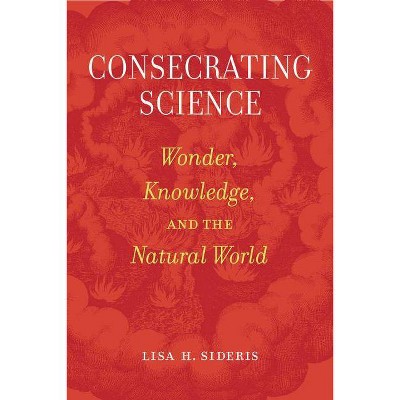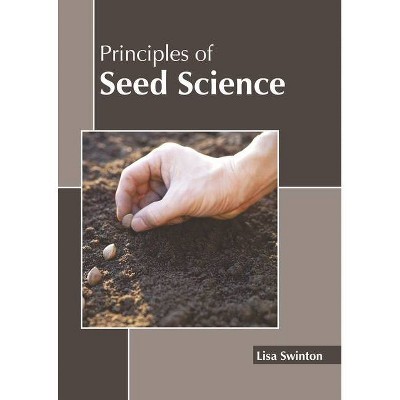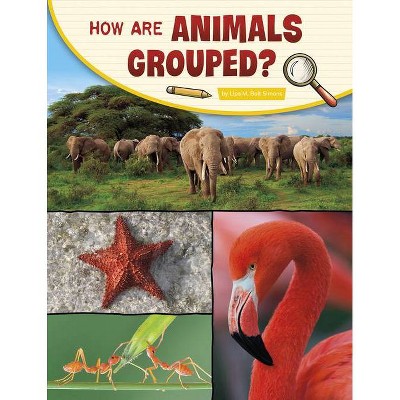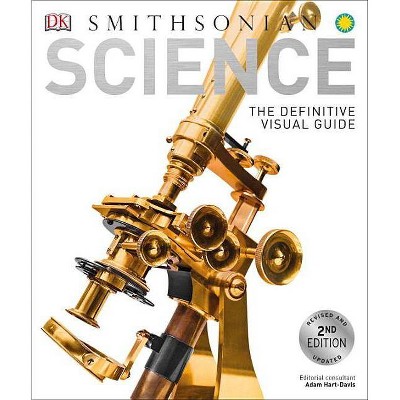Consecrating Science - by Lisa H Sideris (Hardcover)

Similar Products
Product info
<p/><br></br><p><b> About the Book </b></p></br></br> "In Consecrating Science, Lisa Sideris offers a searing critique of 'The New Cosmology,' a complex network of overlapping movements that claim to bring together science and spirituality, all in the name of saving our planet from impending ecological collapse. Highly regarded in many academic circles, these movements have been endorsed by numerous prominent scholars, scientists, historians, and educators. Their express goal--popularized in numerous books, films, TED talks, YouTube videos, podcasts, and even introductory courses at places like Harvard or Washington University--is to instill in readers and audiences a profound sense of being at home in the universe, thereby fostering environmentally responsible behavior. Whether promoted as 'The New Story,' 'The Universe Story,' or 'The Epic of Evolution,' they all offer humanity a new sacred story, a common creation myth for modern times and for all people: the evolutionary unfolding of the universe from the Big Bang to the present. Evolutionary science and religious cosmology--together at last! But as Sideris shows, however, the New Cosmology actually underwrites a staggeringly anthropocentric vision of the world. Instead of cultivating an ethic of respect for nature, the project of 'consecrating science' only increases human arrogance and indifference to nonhuman life. Going back to the work of Rachel Carson and other naturalists, the author shows how a sense of wonder, rooted in the natural world and our own ethical impulses, helps foster environmental attitudes and policies that protect our planet"--Provided by publishe<p/><br></br><p><b> Book Synopsis </b></p></br></br>Debunking myths behind what is known collectively as the new cosmology--a grand, overlapping set of narratives that claim to bring science and spirituality together--Lisa H. Sideris offers a searing critique of the movement's anthropocentric vision of the world. In <i>Consecrating </i><i>Science</i>, Sideris argues that instead of cultivating an ethic of respect for nature, the new cosmology encourages human arrogance, uncritical reverence for science, and indifference to nonhuman life. Exploring moral sensibilities rooted in experience of the natural world, Sideris shows how a sense of wonder can foster environmental attitudes that will protect our planet from ecological collapse for years to come.<p/><br></br><p><b> From the Back Cover </b></p></br></br><i>"Consecrating Science</i> lays out a detailed and incisive critique of current attempts to fashion cosmology, biology, and other sciences into a new religion. Offering an eloquent alternative to this project, Sideris expands on the insights of Rachel Carson, Loren Eiseley, and Annie Dillard to reveal how we can cultivate a transformative sense of wonder, drawn from our direct and corporeal encounters with the natural world."--R. S. Deese, author of <i>Surf Music</i> and <i>We Are Amphibians: Julian and Aldous Huxley on the Future of Our Species</i> <p/> "This is an original and potentially controversial book. It develops an insightful discussion of the idea of 'wonder' at the natural world, while engaging critically and thoughtfully with different accounts of scientific-spiritual narratives of the 'new cosmology.' It's an important book for those who have interests at the intersection of religion, environment, and philosophy."--Clare Palmer, Professor of Philosophy, Texas A&M University<p/><br></br><p><b> Review Quotes </b></p></br></br><br>"<i>Consecrating Science</i> is valuable reading for a number of academic audiences. . . . It is an obvious fit for scholars of religion and science, religion and environment, and environmental ethics (particularly environmental virtue ethics, given the book's focus on the cultivation of attitudes and dispositions). It could also prove useful for higher education administrators thinking through general education curriculum design."-- "Worldviews"<br><br>"Lisa Sideris's <i>Consecrating Science: Wonder, Knowledge, and the Natural World</i> is a rich and deeply insightful analysis of a family of ambitious historical narratives, each of which is vying to become the new myth everyone lives by. Through careful textual study, Sideris convincingly argues that despite their stated goal of promoting a deep respect and care for the natural world, these narratives may inadvertently undermine development of the environmental ethic they seek to foster."-- "Reading Religion"<br><br>"The argument of <i>Consecrating Science</i> is clearly articulated, carefully organized, and impeccably substantiated. Sideris's analysis is consistently generous, nuanced, level-headed, and good-humored. Perhaps most impressively, the book integrates religious studies, science studies, ethics, and critical naturalism into a methodology that somehow remains coherent even in its multivalence."-- "Journal of the American Academy of Religion"<br><p/><br></br><p><b> About the Author </b></p></br></br><b>Lisa H. Sideris</b> is Associate Professor of Religious Studies at Indiana University, where her research focuses on religion, science, and environmentalism. She is the author of <i>Environmental Ethics, Ecological Theology, and Natural Selection</i>.
Price History
Price Archive shows prices from various stores, lets you see history and find the cheapest. There is no actual sale on the website. For all support, inquiry and suggestion messagescommunication@pricearchive.us









